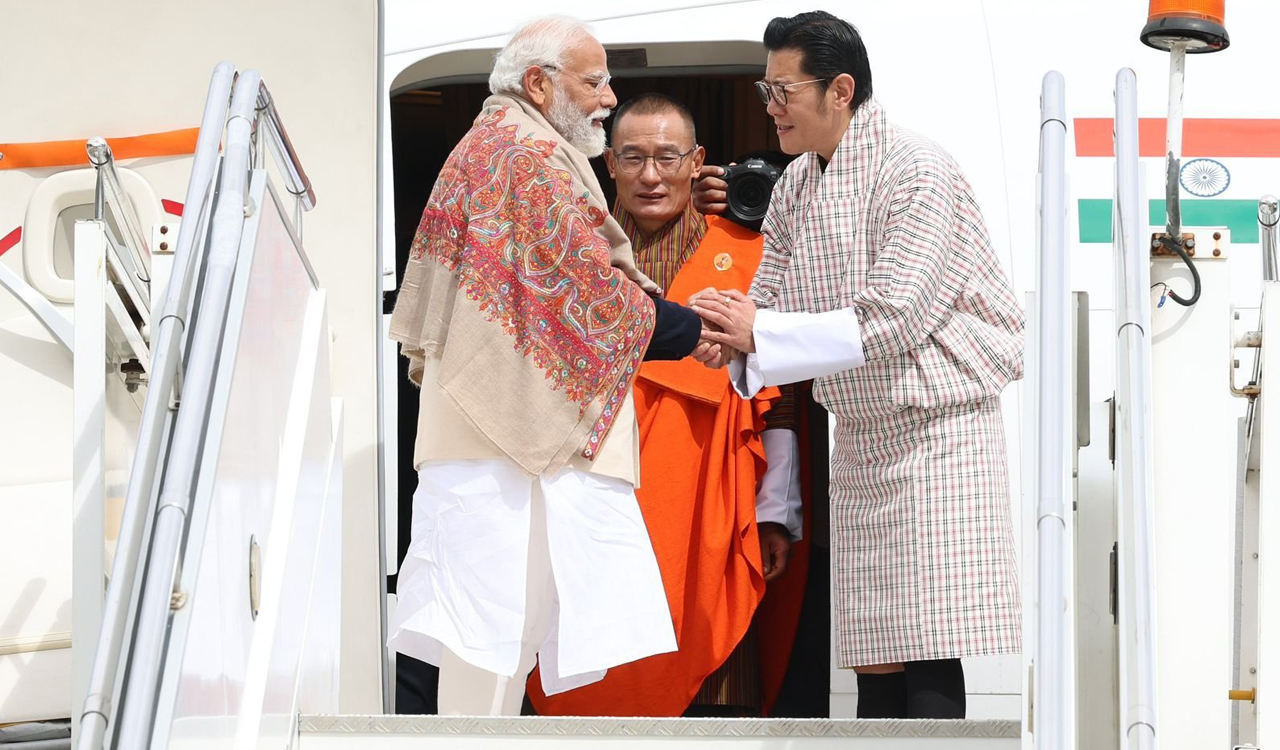Modi’s visit must be seen against the backdrop of China trying to expand its influence in Bhutan
Published Date – 26 March 2024, 12:00 AM

Prime Minister Narendra Modi’s recent visit to Bhutan, in spite of his hectic campaign schedule and the election code of conduct being in place, assumed significance that went beyond the bilateral framework. The outreach comes against the backdrop of China trying to expand its influence in the Himalayan kingdom. Modi’s trip, during which he was conferred the Bhutanese highest civilian award, underscored the pivotal role of Bhutan in India’s strategic calculus and also served as an indirect message to China which is negotiating a boundary agreement with Thimpu. New Delhi has been closely watching the developments regarding a possible boundary agreement between Thimphu and Beijing. One of the proposals includes swapping territory in southern Bhutan, close to the border with India. Beijing has offered Thimphu control of areas on their disputed northern border provided it hands over the region of Doklam which borders India, potentially weakening India’s defence along its 3,488-kilometrelong unmarked border with China. India and Chinese troops were locked in a tense stand-off in the area for over two months in 2017. New Delhi is confident that Bhutan would not make any deal with China that would imperil bilateral relations. The two countries share a deep-seated understanding regarding the sanctity of India’s territorial integrity and any prospective resolution with China is expected to prioritise India’s core security interests and concerns. The India-Bhutan partnership is rooted in mutual trust and goodwill and Modi’s visit has further cemented the bond.
India is unwilling to yield space to China to make inroads in Bhutan in trade and investment areas. The possible swap of land at Doklam is seen as a threat to India’s Siliguri Corridor, whereas China’s claim to areas on Bhutan’s east could imperil India’s border connectivity projects in Arunachal Pradesh. Modi’s visit must be seen against the backdrop of this altering geopolitical scenario. The message from the trip was that India-Bhutan ties are unbreakable in the face of changes in the region. During the visit, the Prime Minister announced the doubling of India’s assistance for Bhutan’s next Five-Year Plan from Rs 5,000 crore to Rs 10,000 crore. India will also shoulder the financial burden of the Gyalsung Initiative, an integrated training programme for Bhutan’s youth. New Delhi is readily backing King Jigme’s Gelephu Special Administrative Region Project by financing a railway line that will be connected to the plains of Assam. Bhutan is an integral part of India’s infrastructure initiatives for road, rail, integrated checkpoints and also for energy exchanges on India’s grid, both of which are pushing sub-regional trade and travel among India, Bangladesh, Bhutan and Nepal. New Delhi has shown respect for Bhutan’s sovereignty by revising the India- Bhutan Friendship Treaty to enable Thimphu to decide its foreign policy. India had facilitated Bhutan’s emergence from isolation by sponsoring its membership of the United Nations and the World Bank.




